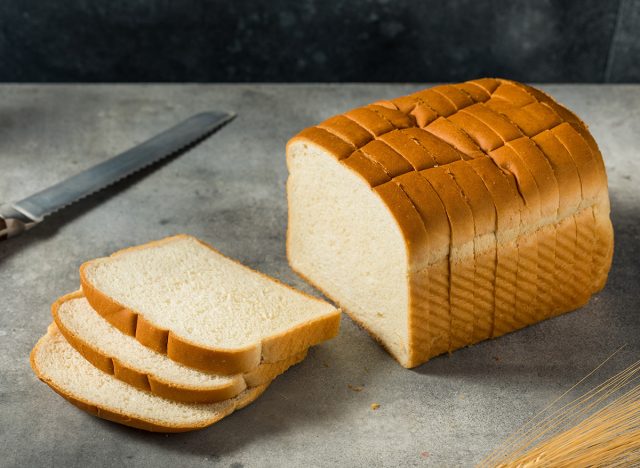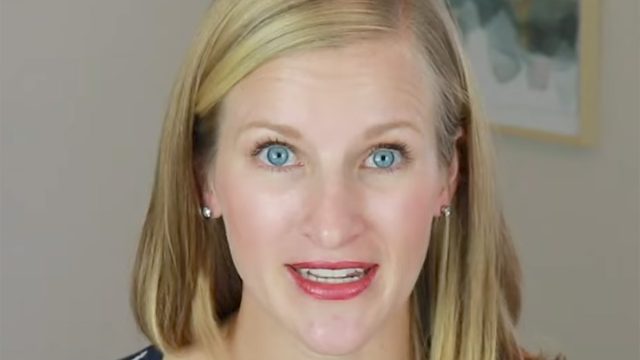10 Fasting Mistakes This Weight Loss Expert Says You Need to Stop Making Now
Are you struggling to see results with intermittent fasting? You're not alone. Many people start their fasting journey with high hopes, only to hit frustrating plateaus. The good news? Most fasting setbacks come down to a few simple, fixable mistakes. Dr. Morgan Nolte, a board-certified clinical specialist in geriatric physical therapy and founder of Zivli, has identified the most common pitfalls that derail fasting success. With her expertise in metabolic health and weight management, she helps clients overcome these obstacles to achieve lasting results. Read on to discover how to avoid these common pitfalls and finally unlock the weight loss results you've been working toward.
What Is Intermittent Fasting?
Unlike traditional diets that focus on what to eat, intermittent fasting centers on when you eat. As Johns Hopkins neuroscientist Mark Mattson explains, "Our bodies have evolved to be able to go without food for many hours, or even several days or longer." This natural fasting ability stems from our prehistoric ancestors, who often went long periods between successful hunts.
How Does It Work?
"After hours without food, the body exhausts its sugar stores and starts burning fat," says Mattson, who has studied intermittent fasting for 25 years. He calls this "metabolic switching." This differs from typical American eating patterns, where frequent meals prevent burning fat. "If someone is eating three meals a day, plus snacks, and they're not exercising, then every time they eat, they're running on those calories and not burning their fat stores."
You're Overeating Processed Foods During Your Eating Window
"Even keto or low-carb processed foods can halt your progress," warns Dr. Nolte in her post. She emphasizes that while intermittent fasting is powerful, what you eat matters just as much as when you eat. The golden rule remains: focus on real, unprocessed foods to optimize both weight loss and metabolic health.
You're Fasting Too Long Too Soon
Shocking your body with dramatic fasting windows can backfire. Dr. Nolte recommends gradually increasing your fasting period by 30-60 minutes rather than jumping straight to lengthy fasts. "Starting too aggressively often leads to a restriction mindset and eventual overeating," she explains.
You're Not Drinking Enough Water

Many forget that we get significant hydration from food. "When fasting, you need to be extra mindful about water intake," says Dr. Nolte. She recommends drinking half your body weight in ounces daily, aiming for clear or light yellow urine as an indicator of good hydration.
You're Consuming Sweet Drinks While Fasting

Even zero-calorie sweeteners can trigger insulin release. "Anything sweet, including alcohol and diet drinks, signals your brain that calories are coming," Dr. Nolte explains. This can increase hunger and disrupt fat burning, defeating the purpose of your fast.
RELATED: Dad Drops 125 Pounds in Just 13 Months By Eating These Foods Every Day
You're Skipping Electrolytes

Dr. Nolte admits this was her own mistake for years. "Unflavored electrolytes during fasting can improve muscle recovery and overall energy," she shares. She recommends either using plain LMNT supplements or making your own mixture with magnesium, potassium, and sea salt.
You're Afraid to Exercise While Fasting
Exercise during fasting can be highly effective when done right. Dr. Nolte recommends Zone 2 aerobic exercise at about 70% of your maximal heart rate. "This level of activity is perfect for fat burning while maintaining muscle mass," she notes.
You're Eating Too Many Starches and Sugars

"There are essential proteins and fats, but no essential starches or sugars," Dr. Nolte points out. To maximize fasting benefits, she advises reducing starchy and sugary foods even during eating windows, as these trigger the largest insulin responses.
RELATED: Weight Loss Coach Shares 5 Key Reverse Dieting Hacks
You're Fasting at the Wrong Time in Your Cycle

For menstruating women, timing matters. Dr. Nolte recommends focusing fasting efforts during days 1-14 of your cycle. "The week of your period through ovulation is optimal for fasting," she explains, while suggesting more flexibility around ovulation and pre-menstrual phases.
You're Fasting Despite Poor Sleep

Sleep deprivation increases hunger hormones, making fasting much harder. "If you're not getting at least seven hours of sleep, focus on improving that before extending your fasts beyond 14 hours," Dr. Nolte advises.
You're Being Impatient About Results

"There is no entitlement in weight loss," Dr. Nolte emphasizes. Initial weight loss might be water weight as insulin levels drop, and that's normal. She encourages focusing on long-term health benefits rather than quick fixes, noting that sustainable results take time.
The Benefits of Intermittent Fasting

The science behind fasting is compelling. "Many things happen during intermittent fasting that can protect organs against chronic diseases like type 2 diabetes, heart disease, age-related neurodegenerative disorders, even inflammatory bowel disease and many cancers," Mattson notes in his research published in the New England Journal of Medicine. Studies have shown improvements in memory, heart health, physical performance, and blood sugar control.
RELATED: This 15-Minute Walking Workout Has 87,000 People Burning Fat Without Leaving Home
Safety and Considerations
While intermittent fasting can be practiced safely by many people, it's not suitable for everyone. Mattson advises that "it can take two to four weeks before the body becomes accustomed to intermittent fasting." He notes that while initial hunger and irritability are common, many people stick with it after the adjustment period because they notice improved well-being. However, certain groups should avoid fasting, including children, pregnant women, people with type 1 diabetes, and those with a history of eating disorders. Always consult with your healthcare provider before starting any fasting regimen. And if you enjoyed this article, take advantage of these 15 Quick Ways to Lose Body Fat Percentage in a Week.





